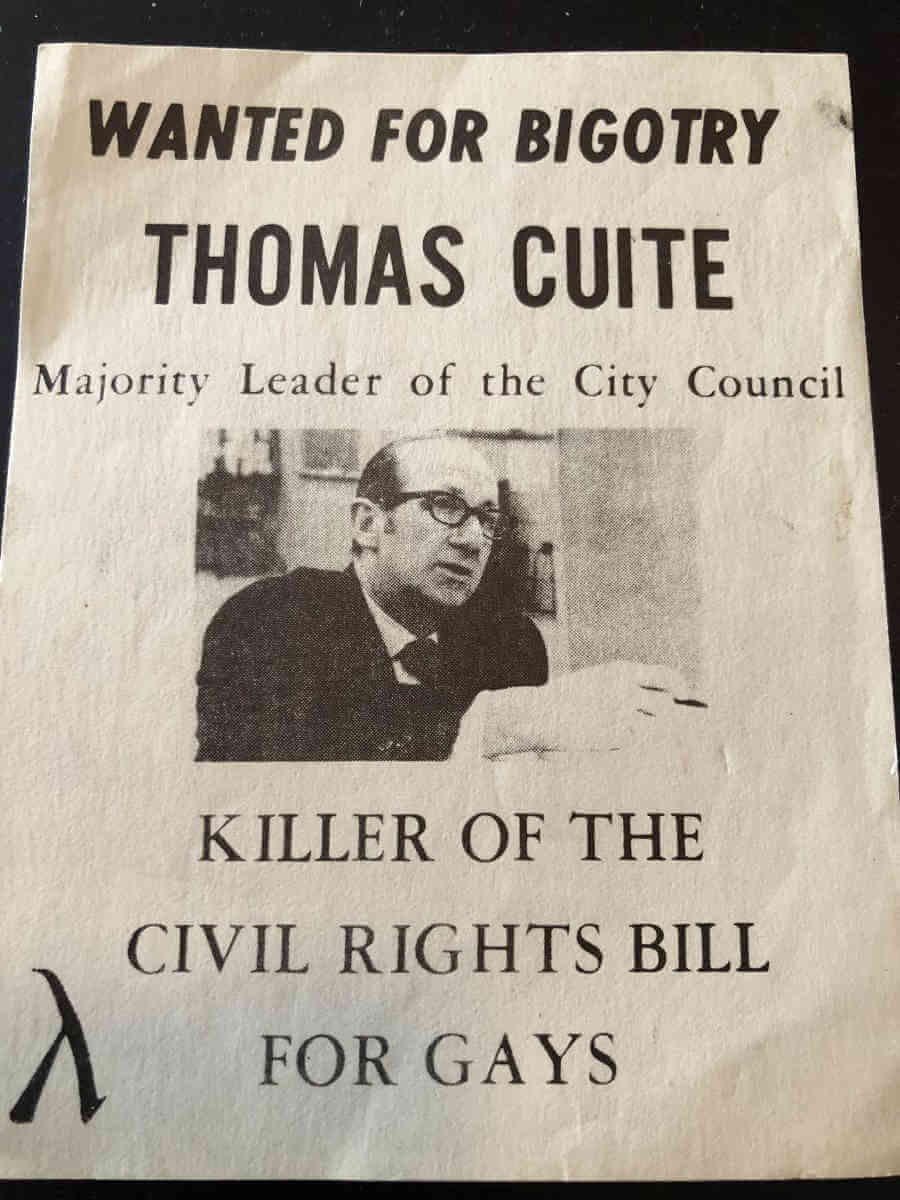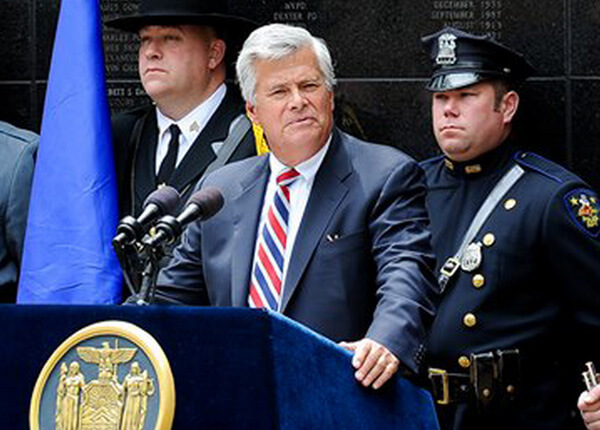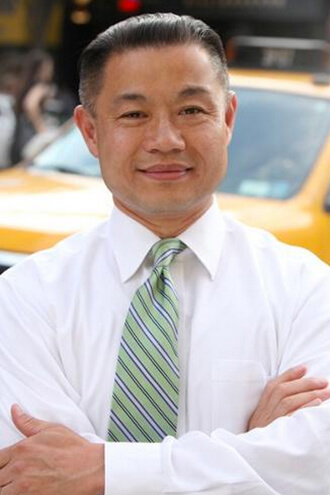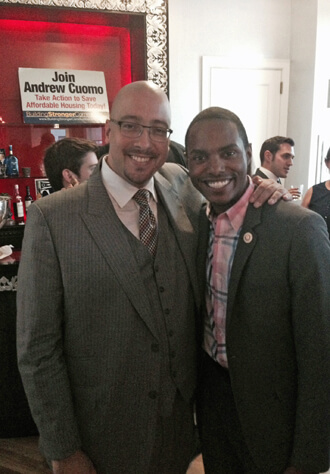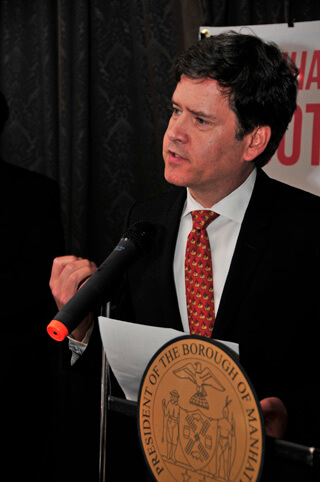After ruffling some feathers with my take on the state of affairs for the LGBTQ community in the Bronx, let’s move over to Brooklyn with a “then and now” look. This column will reminisce on the “then.”
In 1971, four city councilmembers — one from Brooklyn and three from Manhattan — introduced the nation’s first gay rights bill. Councilmember Leonard Skolnik represented Brooklyn Heights and was an original sponsor.
With the addition of new names on the bill in 1974, things really started to get interesting. The bill passed in committee by a 7-1 vote but was defeated on the floor 22-19. Monroe “Mac” Cohen, a sponsor of the bill who represented the Mill Basin and Marine Park areas, voted against it, claiming he was pressured by police and firefighters in his district. Sam Horwitz, another sponsor, also voted no. In Horwitz’s case, he claimed that Buddy Beame, Mayor Abe Beame’s son, threatened him with a primary if he voted for the bill. The mayor was against the bill, though his wife, Mary, was for it because she thought her hairdresser deserved his rights. Good for you, Mary.
Luis Olmedo, an advocate for the bill, voted no at the request of Thomas Cuite. Olmedo wound up in serving time for extortion. Sam Wright abstained and also wound up serving time for extortion. Bad things do happen to bad people.
Howard Golden, who later became borough president, was a no vote on the Council and extremely homophobic. Brooklynite William Thompson, Sr., was dead set against the bill and his position was non-negotiable. His son, William (Bill) Thompson, Jr., who later became city comptroller and ran a close race against Michael Mike Bloomberg in 2009, was a fierce advocate for gay rights. Bill tells me that his father (who later became a judge) regretted ever being against gay rights and has performed gay weddings.
Then there was Leon Katz, a notorious landlord who hated us. Ted Silverman was a loud “no,” though his wife (who was also his chief of staff) was a loud “yes” — but, alas, she had no vote. Silverman’s campaign manager, Bernie Catcher, a Brooklyn legend and deeply closeted, came out to Silverman on Yom Kippur pleading with him to vote aye. Silverman wouldn’t budge. Bernie was part of a group called The Study Group, which was comprised of out gay political activists as well as influential gay people in government and politics, many of whom would only work behind the scenes and remained closeted. It was the 1970s and people were afraid of being ostracized by their families and being unemployable, but they still wanted to be helpful.
Brooklyn had its share of closest cases: Former Council President Carol Bellamy; Allard Lowenstein, who ran for Congress in Brooklyn; and Fred Richmond, who after a stint in the City Council served in Congress from January 1975 to August 1982. Richmond was arrested in Washington for soliciting sex from a 16-year-old boy. In 1982, Richmond was convicted on federal corruption charges. As a result, he resigned from office.
By a long measure, the gay community’s greatest nemesis was Brooklyn’s Thomas Cuite, who represented Red Hook. As a committed Catholic, Cuite was the singular reason the gay rights bill did not pass during his reign as Council majority leader, who then played the role the speaker has since the 1989 Charter Reform.
Meade Esposito, the Brooklyn county leader, was committed to the bill’s passage and would have me in his office while he called in numerous councilmembers to lobby them. Days before a vote on the bill, I was in his office meeting privately and he asked me in his gravelly voice what else he could do. I said call The New York Times and tell them you say the bill must pass. He got reporter Frank Lynn on the line and said, “Frank, front page tomorrow, Meade Esposito says the gay rights bill must pass.” It was on the front page the next day.
Next column: the Brooklyn of today.
Odds and Ends
New York City’s most irrelevant member of Congress, Eliot Engel, recently offered his trademark blah blah blah about the race for state attorney general.
“I don’t think we should pick an attorney general specifically to go after Trump,” he said when asked last week if he thought the candidates currently in the field were ready to take on the president. I think Engel should stop speaking if he has nothing intelligent to say… Crickets.
If you opened up Webster’s Dictionary and looked up the word, “sleazeball,” by all rights you should be able to find a familiar name: Bronx State Senator Jeff Klein. Klein formed the Independent Democratic Conference (IDC), which allowed him and other fake Democrats to caucus with the Republican minority to keep control of the body. As a result, there have been no LGBTQ-related pieces of legislation passed, no Dream Act, no strengthening of abortion rights laws, and no new tenant protections.
Klein recently sent out a mailing referring to the city comptroller and City Council speaker as “Manhattan Elite” as a way to diminish their support of his rival, Alessandra Biaggi, whom he curiously charged was “parading” herself with Scott Stringer and Corey Johnson. Interesting dog whistle… um, choice of words.
The true candidate of the so-called Manhattan Elite is Jeff Klein. Just follow the money. I wonder how Bronx voters will feel knowing that their famously transactional state senator is in the pockets of slumlords who live in Manhattan. The only thing more conspicuous than Jeff Klein’s fake tan is the dirty money he takes from real estate.
All of the so-called Democratic senators who belonged to the IDC must be defeated.
On a recent visit to Palm Springs, California, I met with some local gay activists. I marvel at how Palm Springs has changed from 30 years ago when I first started visiting there. Back then it was totally Republican: congressmember, mayor, and other local electeds. Now Raul Ruiz, a Democrat, is in Congress, Mayor Robert Moon is gay, as were the two previous mayors — including Mayor Ron Oden, one of a few openly black gay politicians in the US. The five-member City Council is entirety LGBTQ and all Democratic. Viva la Palm Springs!

